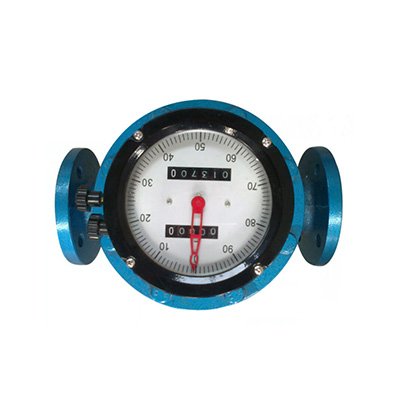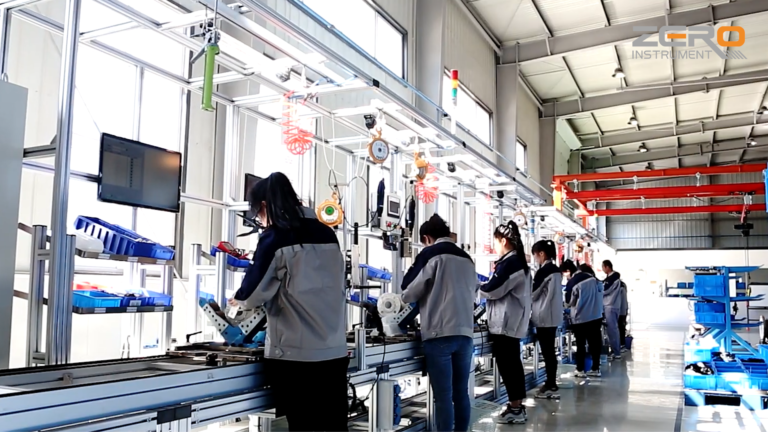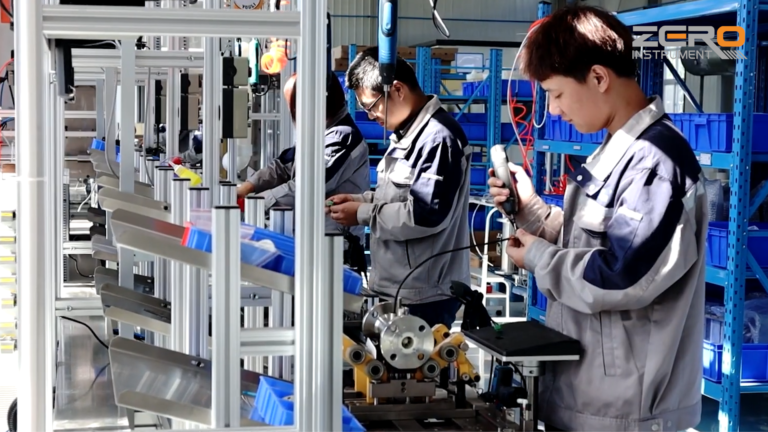Volumetric flow meters play a vital role in the chemical industry, where accurate measurement and control of fluid flow are essential for maintaining product quality, optimizing production processes, managing energy consumption, and ensuring safety and environmental compliance. The primary applications include:
1. Accurate Measurement of Fluid Flow
1.1 Measurement of Raw Materials: In chemical production, the precise measurement of raw materials is critical for both product quality and production safety. Volumetric flow meters can accurately measure the flow of liquids and gases, providing reliable data for the mixing ratios of chemical raw materials. For instance, in ammonia synthesis, the accurate measurement of hydrogen and nitrogen flow rates ensures the proper progression of the reaction.
1.2 Product Flow Monitoring: During the production of chemical products, volumetric flow meters can monitor the flow of products in real-time, helping companies track production progress and ensure product quality. For example, in the petrochemical industry, monitoring the flow of refined oil ensures that both production output and quality meet the required standards.

2. Optimization of Process Control
2.1 Flow Control Feedback: When integrated with control systems, volumetric flow meters enable precise control of fluid flow. The flow meter’s signals can be fed back to a controller, which adjusts valve openings or pump speeds to stabilize the flow. For instance, during chemical reactions, it is crucial to control the flow of reactants accurately to maintain appropriate temperature and pressure within the reaction.
2.2 Adjustment of Process Parameters: The flow data provided by volumetric flow meters allow chemical companies to adjust process parameters promptly, improving both production efficiency and product quality. For example, during the distillation process, monitoring the flow of reflux and extract allows operators to adjust the reflux ratio and extraction rate, optimizing distillation efficiency.

3. Energy Management and Cost Control
3.1 Measurement of Energy Consumption: Chemical production consumes large amounts of energy, including steam, water, and electricity. Volumetric flow meters can accurately measure the flow of these resources, assisting in energy management and cost control. For instance, measuring steam flow can help calculate the cost of steam consumption during production, allowing for energy-saving measures that reduce costs.
3.2 Leak Detection: Volumetric flow meters can detect small leaks in pipelines, helping identify and address leaks in a timely manner, thus preventing energy waste and potential safety hazards. For example, by comparing flow readings from different locations in a chemical pipeline system, it is possible to detect and locate leaks.

4. Safety Monitoring and Environmental Compliance
4.1 Safety Monitoring: In chemical production, the flow of flammable, explosive, or toxic fluids must be strictly controlled to ensure production safety. Volumetric flow meters can monitor the flow of these fluids in real-time, issuing alarms if the flow exceeds safe limits. For instance, in hydrogen pipelines, a volumetric flow meter can monitor hydrogen flow to prevent leaks and explosions.
4.2 Environmental Compliance: Chemical companies must comply with environmental regulations by monitoring and controlling the discharge of wastewater, exhaust gases, and other pollutants. Volumetric flow meters can measure the flow of wastewater and exhaust gases, helping ensure that emissions meet environmental standards. For instance, in wastewater treatment, monitoring flow allows operators to adjust treatment processes to ensure compliant discharge.

Conclusion
Volumetric flow meters have significant application value in chemical production, providing accurate flow measurement, optimizing process control, enabling energy management and cost control, and supporting production safety and environmental compliance. Their widespread use can lead to enhanced operational efficiency, lower costs, and improved safety in chemical plants.
